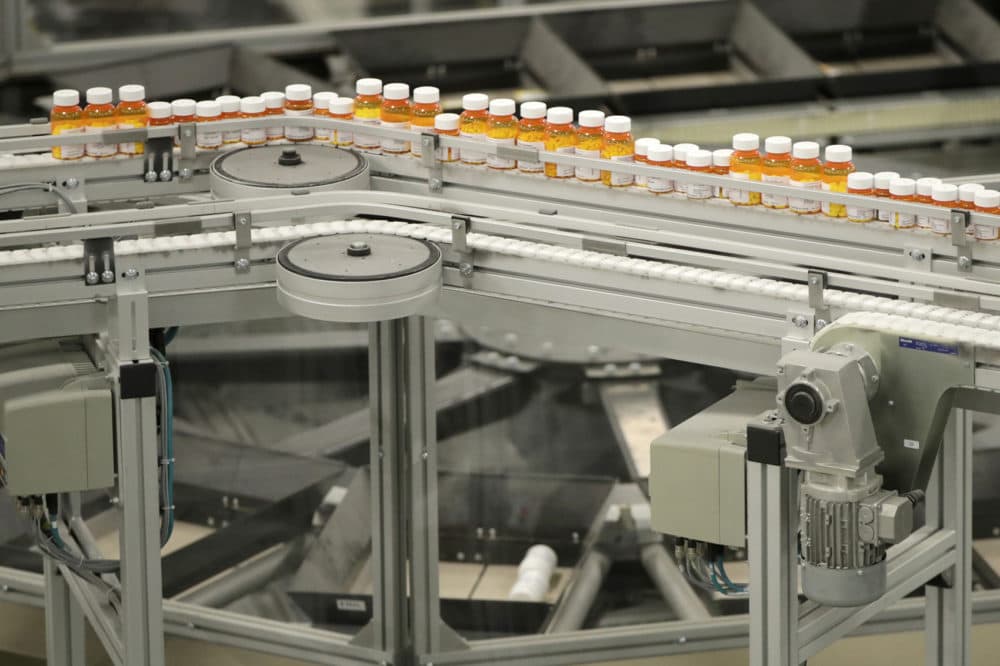Advertisement
Transparency And Drug Prices: Will The New U.S. Mandate On TV Ads Drive Costs Down?
Resume
With Meghna Chakrabarti
The Trump Administration wants pharma companies to list drug prices on ads for all prescriptions paid for by Medicare and Medicaid. Could it drive down costs?
Guests
Sarah Karlin-Smith, health care reporter for Politico covering the policy and politics of the drug industry. (@SarahKarlin)
Gail Wilensky, economist and senior fellow at the health foundation Project HOPE. Directed Medicare and Medicaid programs during the George H.W. Bush administration. Adviser to Sen. John McCain’s 2008 presidential campaign and was a contributor to the McCain health care plan.
David Mitchell, president and founder of Patients for Affordable Drugs. In 2010 he was diagnosed with multiple myeloma – an incurable but treatable blood cancer. (@DavidP4AD)
Dr. Michael Ybarra, vice president of medical affairs at PhRMA and emergency room physician.
From The Reading List
Politico: "Trump issues rule to require drug prices in TV ads, rejecting industry plan" — "The Trump administration on Monday moved to require drugmakers to disclose prices in consumer ads, just hours after branding a pharmaceutical industry transparency plan as inadequate.
"HHS said its proposed rule fulfilled another prong of the president's blueprint to address pharmaceutical costs and would help Americans make more informed decisions that could lower out-of-pocket costs and those of government health programs like Medicare and Medicaid. The move came with polls showing significant voter outrage about drug costs, which also are comprising an ever larger share of the federal budget."
Wall Street Journal: "Pharma Industry Pushes Back Against Required Listing of Drug Prices in TV Ads" — "The pharmaceutical industry is signaling resistance to a Trump administration plan to require that the list price be included for most drugs in television ads, setting the stage for a protracted fight over a proposal with broad bipartisan support.
"The standoff escalated Monday when the Pharmaceutical Research and Manufacturers of America—the pharmaceutical industry’s main trade group, or PhRMA—announced that major drugmakers would voluntarily include price-related information in television ads by directing consumers to websites where they can find information on list prices and costs.
"That action falls short of a rule, also formally proposed Monday by the Department Health and Human Services, to mandate the disclosure of list prices in television ads, rather than referring consumers elsewhere for information."
STAT: "Trump wants drug commercials to include prices. These five companies have the most at stake" — "President Trump wants to force drug companies to disclose their prices in TV ads — and that’s going to hit five companies much harder than any others: Pfizer, AbbVie, Eli Lilly, Amgen, and Allergan.
"Just a few dozen drug companies run any TV ads at all, and those five companies alone were responsible for more than half of the drug ads customers saw on TV in the last 12 months, according to a STAT analysis of data provided by analytics company iSpot.tv. Pfizer, for example, ran 37 unique ads in the last 12 months — racking up an advertising bill of over $600 million, according to iSpot’s estimate.
"The list sheds light on the ultimate impact of the proposed policy, which Health and Human Services Secretary Alex Azar unveiled Monday and which would affect any drug covered by Medicare or Medicaid that cost more than $35 per month."
This program aired on October 18, 2018.